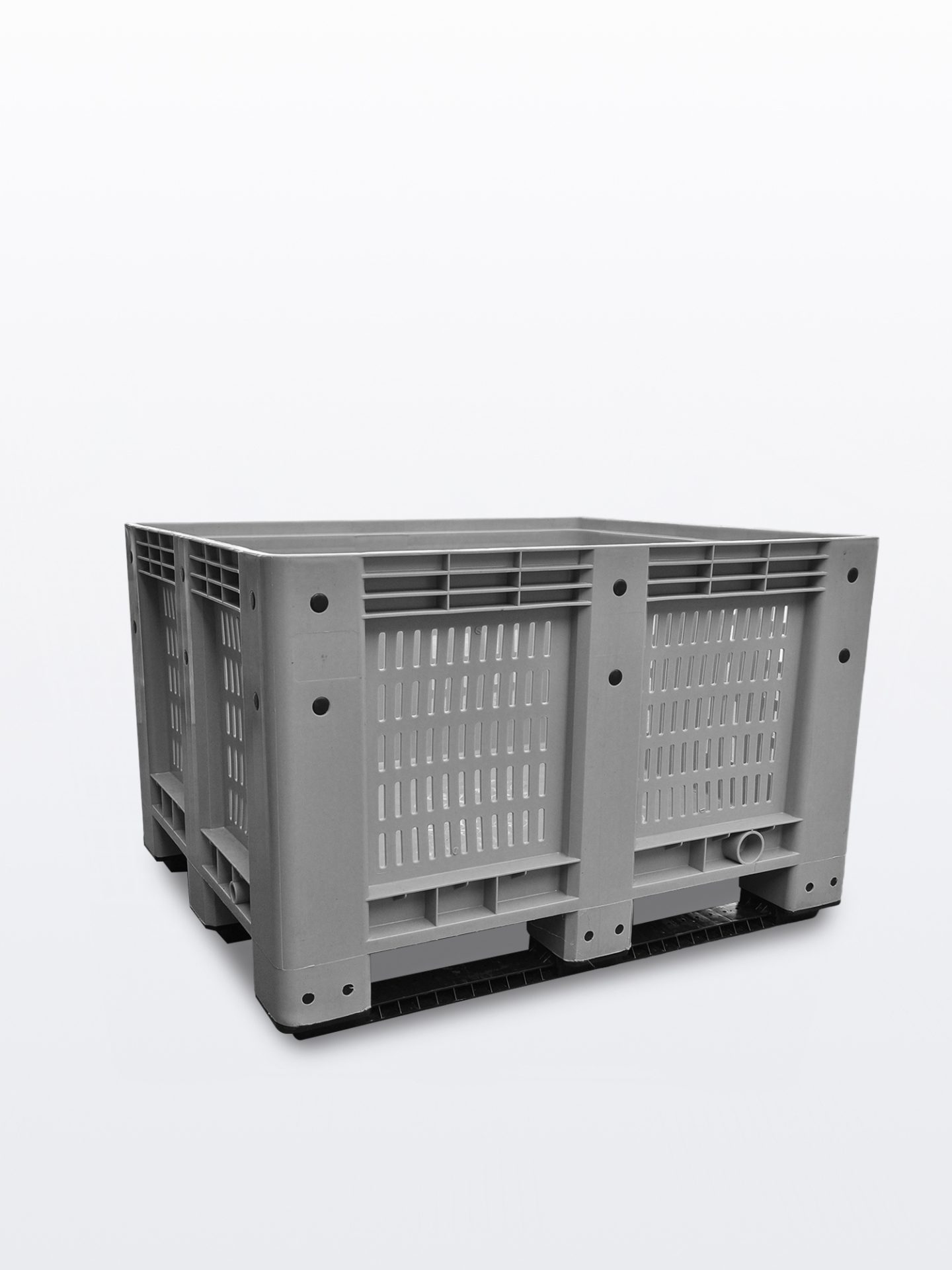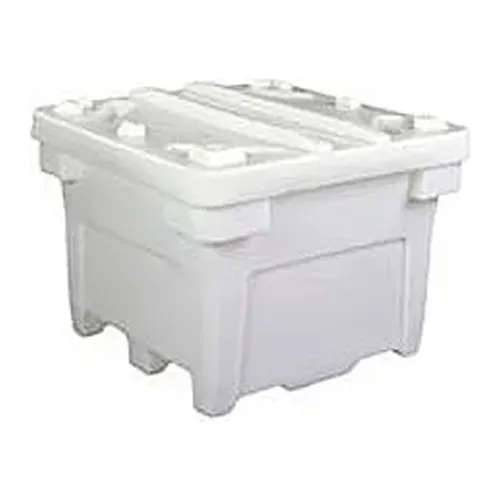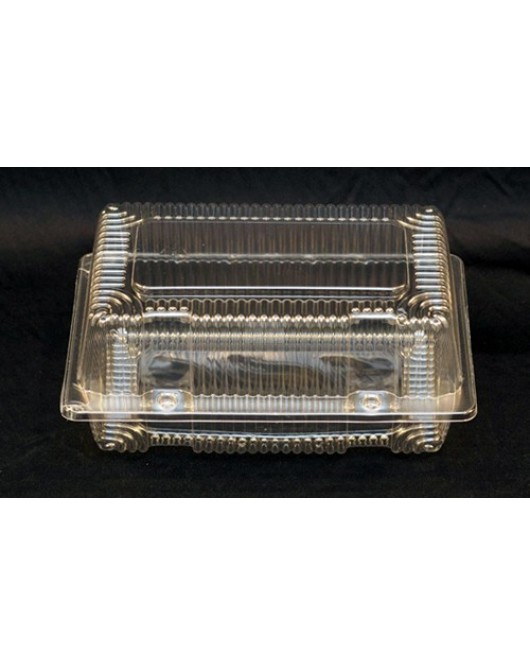A Comprehensive Guide to the Different Kinds Of Bulk Plastic Containers Available Today
Mass plastic containers play an essential role in different industries, supplying solutions for storage and transportation. Their diverse kinds deal with various requirements, from rigid choices for solid materials to adaptable containers accommodating numerous shapes. Each kind provides unique advantages, making it vital to recognize their applications and attributes. As industries develop, so do the demands for effective container services. What variables should one think about when selecting the ideal bulk container?
Overview of Bulk Plastic Containers

Kinds of Mass Plastic Containers
Bulk plastic containers can be found in numerous types, each matched to certain applications. Stiff mass containers, flexible mass containers, and intermediate bulk containers represent the key groups, each offering special benefits. Recognizing these kinds is essential for picking the right container for carrying and keeping products.

Rigid Mass Containers
Stiff mass containers are critical for efficient storage and transportation of numerous materials throughout markets. These containers are usually constructed from resilient plastics, enabling them to hold up against harsh handling and ecological problems. They can be found in numerous shapes and dimensions, including bins, drums, and totes, making them suitable for keeping every little thing from granular substances to liquids. Inflexible containers frequently include reinforced wall surfaces and secure lids, guaranteeing the components stay protected during transit. Their stackable style optimizes storage space, making them optimal for stockrooms and making centers. Additionally, many inflexible mass containers are multiple-use and recyclable, adding to sustainability initiatives. Overall, their effectiveness and versatility make stiff bulk containers an essential part in supply chain procedures.
Flexible Bulk Containers
Adaptable bulk containers, usually described as versatile intermediate bulk containers (FIBCs), function as a functional service for delivering and saving a variety of completely dry products. These containers are normally made from woven polypropylene and are designed to be lightweight yet strong, enabling efficient handling and stacking. Their versatility enables them to fit numerous shapes and dimensions, making them appropriate for items varying from grains to chemicals. FIBCs can be geared up with attributes such as spouts for easy dental filling and discharge, along with safety coverings for improved resilience. In addition, they are reusable and recyclable, adding to lasting practices in markets such as agriculture, food processing, and building. Generally, flexible mass containers offer a efficient and cost-effective alternative for bulk material management.
Intermediate Bulk Containers
Intermediate bulk containers (IBCs) are crucial for the effective transportation and storage space of liquids and granular products across different industries. These containers normally have a capability varying from 275 to 330 gallons and are made for easy piling and taking care of. Made from sturdy materials like high-density polyethylene or steel, IBCs supply outstanding protection against contamination and environmental factors. Their style consists of functions such as a built-in pallet for forklift gain access to and a detachable top for simple dental filling and cleaning. IBCs are extensively utilized in chemical, food, and pharmaceutical fields, making certain conformity with safety laws. Their adaptability and reusability make them a cost-effective solution for bulk storage and transportation, contributing to provide chain effectiveness and sustainability.
Attributes and Advantages of Bulk Plastic Containers
Mass plastic containers are crucial tools in different sectors, providing a mix of durability and usefulness. These containers are constructed from high-grade products, making them immune to influences, chemicals, and ecological aspects. This effectiveness guarantees product safety throughout storage space and transport.
Additionally, bulk plastic containers are light-weight, assisting in convenience of minimizing and taking care of delivery costs. Their stackable design makes best use of storage efficiency, allowing for optimized warehouse area. Lots of designs feature protected lids or closures, offering an airtight seal that stops and protects contents contamination.
Mass plastic containers are typically reusable and recyclable, contributing to lasting practices. Their versatility enables a vast array of applications, from food storage to commercial usage, enhancing their value across markets. Businesses gain from the long life-span and reduced maintenance requirements of these containers, making them a cost-effective remedy for both temporary and long-lasting needs.
Industries That Use Bulk Plastic Containers
Numerous sectors gain from using mass plastic containers, each leveraging their special buildings for particular applications. The food and beverage industry depends on these containers for secure storage and transport of items, while the chemical manufacturing field uses them for taking care of unsafe products. Additionally, the pharmaceutical circulation needs emphasize the significance of longevity and tidiness in packaging services.
Food and Beverage Sector
As the demand for safe and effective storage services remains to increase, the food and drink industry significantly counts on bulk plastic containers for over at this website their operational demands. These containers supply robust, light-weight, and versatile choices for storing components, finished products, and waste materials. Made from food-grade materials, they assure compliance with health and wellness criteria. Various layouts, such as stackable containers and carry boxes, maximize space throughout transportation and storage space, improving logistical effectiveness. Additionally, the openness of some mass containers permits very easy stock monitoring, reducing the danger of putridity. With the sector's emphasis on sustainability, several makers are now supplying recyclable and recyclable alternatives, aligning with environmentally friendly methods while satisfying the high needs of food security and health.
Chemical Manufacturing Industry
The chemical production sector counts heavily on mass plastic containers for the reliable and risk-free storage of basic materials, intermediates, and finished products. These containers are developed to stand up to various chemicals, making certain that harmful products do not leakage or deteriorate the container itself. Usual kinds consist of high-density polyethylene (HDPE) and polypropylene containers, which supply outstanding chemical resistance web and resilience. Their light-weight nature and stackable design assist in transport and storage space, optimizing space in making facilities. Additionally, several bulk plastic containers include functions such as tamper-evident seals and easy-to-read labeling, enhancing security and compliance with industry laws. On the whole, mass plastic containers are essential to the chemical manufacturing procedure, offering dependable solutions for dealing with diverse materials.
Pharmaceutical Distribution Demands
Pharmaceutical distribution depends on bulk plastic containers to fulfill stringent safety and governing demands. These containers are vital for storing a selection and moving of pharmaceutical items, consisting of energetic pharmaceutical components (APIs) and ended up medicines. Their layout assurances defense against contamination, light, and moisture, keeping the honesty of sensitive products. In addition, bulk plastic containers are compliant with sector requirements such as Good Manufacturing Practices (GMP) and are frequently made from materials that are FDA-approved. Making use of these containers boosts performance in the supply chain, permitting secure, large circulation while decreasing waste. Companies in the pharmaceutical industry prioritize making use of resilient, watertight, and tamper-evident containers to guarantee product safety and security and quality throughout the logistics procedure.
Considerations for Selecting the Right Container
When picking the proper bulk plastic container, various aspects have to be thoroughly considered to assure ideal capability and safety and security. The nature of the products to be stored is extremely important; compatibility with the container's material can influence stability and safety. Bulk Plastic Containers. Furthermore, the container's shapes and size should straighten with the storage space and transportation requirements, guaranteeing reliable room usage
Tons ability is another important factor to consider, as it needs to suit the weight of materials without threat of damages or failing. The design features, such as venting or covers, can influence use and gain access to. Conformity with sector policies is vital, especially in markets like drugs, where safety and security requirements are rigid.
Ultimately, the anticipated life-span and longevity of the container need to be assessed to confirm it fulfills the operational demands without constant replacement. By reviewing these aspects, one can select one of the most ideal bulk plastic container for certain applications.
Environmental Effect and Sustainability
As organizations significantly focus on sustainability, the ecological effect of mass plastic containers has actually come under scrutiny. These containers, commonly made from materials such as polyethylene or polypropylene, add greatly to plastic waste if not taken care of properly. Their production involves the consumption of fossil gas, which can bring about increased greenhouse gas emissions. Nevertheless, improvements in reusing modern technology and the development of naturally degradable alternatives are assisting to minimize these concerns.
Many suppliers are taking on methods that highlight the use of recycled materials, thus reducing the need for virgin plastics. The durability of mass plastic containers also plays a function; they are developed to be reused numerous times, which can reduce their overall ecological footprint when compared to single-use alternatives. Ultimately, the market faces the obstacle of balancing additional resources performance with eco-friendly obligation, making lasting practices necessary for the future of bulk plastic containers.
Ideal Practices for Storage and Transport
Effective storage and transport of mass plastic containers greatly influence both functional efficiency and sustainability. To make the most of room, organizations should stack containers safely, assuring security and preventing damages. Correct labeling is essential for easy recognition, which simplifies retrieval processes. Additionally, preserving a organized and clean storage location lowers the threat of contamination and improves safety and security.
For transportation, selecting the ideal lorry is vital; containers must be secured to prevent moving during transit. Companies ought to also think about utilizing pallets to assist in much easier loading and discharging. Normal examinations of containers for deterioration can prevent expensive replacements.
Temperature level control is one more essential aspect, as extreme problems can jeopardize the integrity of the plastic. Training employees on finest practices for managing and transportation warranties compliance and advertises a culture of safety. By applying these best methods, organizations can improve their operational efficiency while adding to environmental sustainability.
Regularly Asked Questions
How Do I Clean Bulk Plastic Containers Properly?
To tidy bulk plastic containers successfully, one must wash them with warm water, utilize a light cleaning agent and scrub with a soft brush. Wash thoroughly, after that permit to air completely dry totally before storage or reuse.
What Is the Life-span of Mass Plastic Containers?
The lifespan of mass plastic containers generally ranges from 5 to ten years, depending upon the product, use, and environmental conditions. Appropriate maintenance and storage space can substantially expand their use and toughness with time.
Can Mass Plastic Containers Be Customized?

Do Mass Plastic Containers Have Service Warranty Options?

Exist Regulations for Utilizing Bulk Plastic Containers?
Yes, regulations exist for making use of bulk plastic containers, primarily concentrated on safety, ecological impact, and product compliance. These laws ensure that containers satisfy sector requirements and are appropriate for transferring different substances securely and successfully.
Rigid mass containers, flexible bulk containers, and intermediate bulk containers represent the primary categories, each offering distinct advantages. Versatile bulk containers, typically referred to as flexible intermediate mass containers (FIBCs), offer as a versatile solution for transporting and storing a selection of dry materials. The chemical manufacturing sector relies heavily on bulk plastic containers for the reliable and risk-free storage of raw products, intermediates, and ended up items. bulk plastic containers for sale. These containers are developed to stand up to numerous chemicals, making sure that harmful materials do not leakage or deteriorate the container itself. Additionally, bulk plastic containers are certified with industry criteria such as Good Manufacturing Practices (GMP) and are commonly made from materials that are FDA-approved